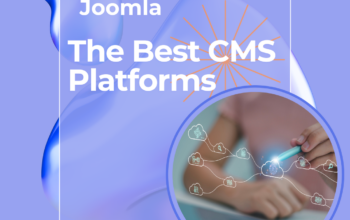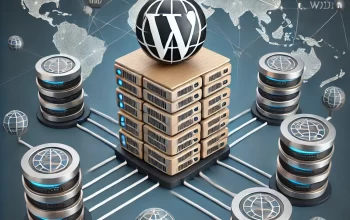E-commerce web development is the cornerstone of creating robust, user-friendly online stores that cater to the needs of modern businesses and consumers. At Pentoz, we specialize in developing e-commerce websites that are not only visually appealing but also highly functional and secure, ensuring your online business thrives in a competitive market.
What Is E-Commerce Web Development?
E-commerce web development involves designing, building, and maintaining online platforms that facilitate the buying and selling of products or services. It encompasses everything from user experience (UX) design and secure payment integration to inventory management and mobile responsiveness. A well-designed e-commerce site not only attracts customers but also ensures a seamless shopping experience.
Choosing the Right Platform for Your E-Commerce Website
What Is the Best E-Commerce Platform?
Choosing the right platform is critical for the success of your e-commerce site. Some of the most popular platforms include:
- Shopify: Known for its ease of use and scalability.
- WooCommerce: A WordPress plugin ideal for customizable solutions.
- Magento: A robust choice for enterprise-level businesses.
- BigCommerce: Great for multi-channel selling.
Does Shopify use AWS?
Yes, Shopify leverages Amazon Web Services (AWS) to provide scalable and reliable cloud hosting. This infrastructure ensures high performance and uptime for Shopify stores.
Building an E-Commerce Website: Steps and Options
How Would I Develop an E-Commerce Website?
Developing an e-commerce website involves several key steps:
- Planning: Identify your target audience, business goals, and required features.
- Design: Create a user-friendly and visually appealing design.
- Development: Code the website using the chosen platform or framework.
- Testing: Ensure the site is free of bugs and optimized for performance.
- Launch: Deploy the site and make it live.
- Maintenance: Regularly update and improve the site.
Can I Build an E-Commerce Website on My Own?
Yes, you can build an e-commerce site on your own using platforms like Shopify or Wix. However, professional developers can provide a more customized and optimized solution tailored to your specific needs.
How Do I Host an E-Commerce Website?
Hosting options for e-commerce websites include:
- Shared Hosting: Affordable but limited in resources.
- VPS Hosting: Offers better performance and flexibility.
- Cloud Hosting: Scalable and reliable for growing businesses.
- Dedicated Hosting: High performance for large-scale operations.
Planning Your E-Commerce Website
What Are the Steps in Planning for an E-Commerce Website?
- Market Research: Understand your competitors and target audience.
- Define Goals: Set clear objectives for your website.
- Choose Features: Decide on functionalities like payment gateways, search filters, and product categories.
- Wireframing: Sketch the layout and structure of your site.
- Content Strategy: Prepare product descriptions, images, and SEO-optimized content.
How Do I Create a B2B E-Commerce Website?
Creating a B2B e-commerce site requires specific considerations, such as:
- Bulk ordering capabilities.
- Tiered pricing models.
- Advanced user management.
- Integration with ERP and CRM systems.
Tools and Software for E-Commerce Web Development
Which Software Is Best for E-Commerce Website Development?
Some top tools and software include:
- Content Management Systems (CMS): WordPress, Magento.
- Frameworks: Laravel, React.
- Payment Gateways: Stripe, PayPal.
- Inventory Management: Zoho Inventory, TradeGecko.
Financial Considerations in E-Commerce Development
How Much Does It Take to Develop an E-Commerce Website?
The cost of developing an e-commerce site depends on various factors:
- Domain and Hosting: $10-$500/year.
- Platform Fees: $29-$299/month (e.g., Shopify).
- Custom Development: $1,000-$50,000 based on complexity.
- Maintenance: $500- $5,000/year.
Beyond Development: Starting and Running an E-Commerce Business
How Do I Build an E-Commerce Business?
Building a successful e-commerce business involves:
- Business Plan: Define your niche and strategy.
- Marketing: Use SEO, social media, and email campaigns.
- Customer Service: Provide excellent post-purchase support.
- Analytics: Monitor site performance and customer behavior.
How Do E-Commerce Websites Work?
E-commerce websites function by:
- Allowing users to browse and search for products.
- Enabling secure transactions through integrated payment gateways.
- Managing inventory and processing orders efficiently.
- Providing shipping and tracking information to customers.
Conclusion
E-commerce web development is an essential investment for businesses looking to succeed in the digital marketplace. At Pentoz, we are committed to delivering high-quality, customized solutions that meet your specific needs. Whether you’re starting from scratch or looking to upgrade your existing platform, we’re here to help you every step of the way.
FAQs
- What is the best e-commerce platform? Platforms like Shopify and WooCommerce are popular for their versatility and ease of use.
- How much does it cost to develop an e-commerce site? Costs vary depending on size, features, and customization.
- Can I develop an e-commerce site myself? Yes, but professional developers offer more advanced and tailored solutions.
- Why choose Pentoz for e-commerce web development? Pentoz provides innovative, customized solutions tailored to your business needs, ensuring a seamless shopping experience for your customers.
- Does Pentoz offer support after e-commerce website launch? Yes, Pentoz offers ongoing maintenance, updates, and support to ensure your site runs smoothly and stays updated.
- How long does it take Pentoz to develop an e-commerce website? The timeline depends on the complexity and features of the site, but Pentoz ensures timely delivery without compromising quality.





